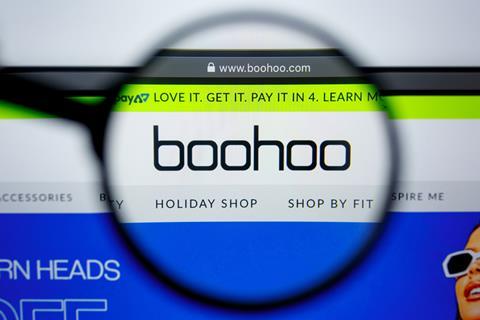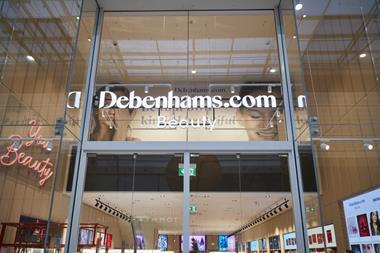Boohoo has warned it is likely to suffer further revenue erosion during the crucial golden quarter after its first-half profits tumbled.

The online fashion retailer suffered a 10% drop in sales to £882.4m in the six months to August 31 – and cautioned that it expects “a similar rate of revenue declines” during the second half of its financial year, which includes the festive period.
Boohoo said that “inflation-driven costs” and lower sales meant EBITDA margins for its full-year were now likely to come in between 3% and 5%, compared to the 4%-7% it previously guided.
The warning came after Boohoo’s bottom line crashed during the first half of its fiscal year.
The etailer said adjusted pre-tax profit slumped 90% to just £6.2m during the period.
Adjusted EBITDA was down 58% at £35.5m, accounting for just 4% of revenue compared to 8.7% a year ago.
Gross margins also slipped from 54.6% during the comparable six-month period a year ago to 52.5%.
Sales dropped at a steeper rate in Boohoo’s international business, falling 17% during the retailer’s first half. In its core UK market, sales were down 4%.
Boohoo admitted it saw sales “softening” during the summer and said “consumer demand appears to have been impacted by cost of living pressures”.
Despite the gloomy statement, Boohoo said gross revenue before returns was up 4%, “reflecting underlying growth and ongoing improvements in average order frequency and spend per customer”.
However, returns rates jumped “significantly” year-on-year and are now ahead of pre-pandemic levels, the etailer said.
Boohoo insisted it had “significant liquidity headroom” and just £10m of net debt – a financial position that would allow it to make “selective investments into strategic growth initiatives”.
Chief executive John Lyttle said Boohoo had “a clear plan in place to improve future profitability” – it is focusing on sourcing more from near-shore markets; carrying reduced stock levels, and better managing costs.
Lyttle added: “Performance in the first half was impacted by a more challenging economic backdrop weighing on consumer demand. Over the last three years the group has seen significant gains in market share achieved across our brand portfolio, particularly in the UK where our price, product and proposition resonate strongly with customers.
“We remain confident in the long-term outlook, as we continue to offer customers unrivalled choice, inclusive ranges and great value pricing, giving them even more reasons to shop with us.”
• Never miss a story – sign up to Retail Week’s breaking news alerts



























1 Reader's comment